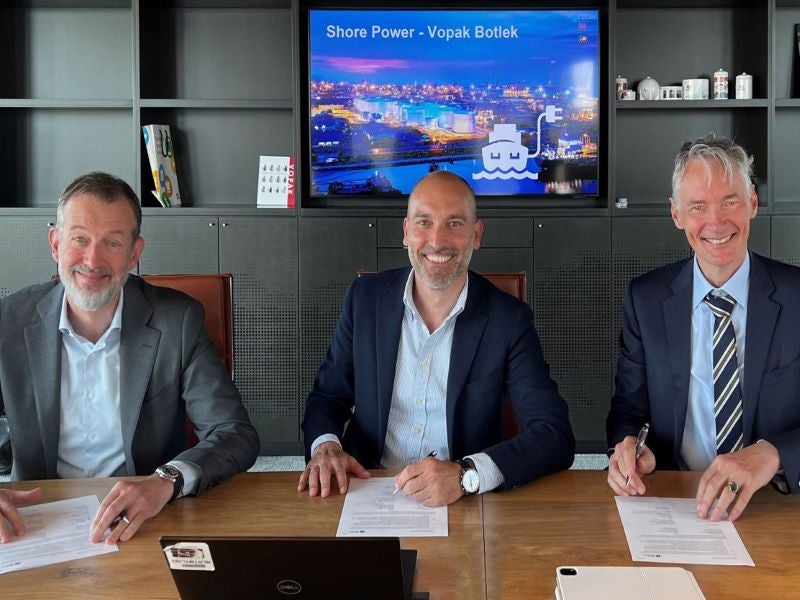
Stolt Tankers has entered a memorandum of understanding (MoU) with the Port of Rotterdam Authority and Vopak Botlek in the Netherlands for a feasibility study on shore-based power installation.
Under the MoU, the partners will carry out a six-month feasibility study on the deployment of shore-based power for chemical tankers calling at Vopak’s Botlek terminal.
Ships will be able to switch off their diesel generators and connect to mains power on reaching the port. This power will mainly be produced from renewable sources.
Stolt Tankers president Lucas Vos said: “The availability of shore-based power for our ships has the potential to greatly reduce the use of on-board diesel generators while ships are in port, resulting in a significant reduction of greenhouse gas (GHG) emissions.
“This supports Stolt Tankers’ ambition to reduce its GHG emissions intensity by at least 50% by 2030, compared to 2008 levels, – well ahead of the International Maritime Organisation’s (IMO) target of 40%.”
The feasibility study is being carried out to discover efficient solutions that could serve as the basis for an agreed international standard.
How well do you really know your competitors?
Access the most comprehensive Company Profiles on the market, powered by GlobalData. Save hours of research. Gain competitive edge.

Thank you!
Your download email will arrive shortly
Not ready to buy yet? Download a free sample
We are confident about the unique quality of our Company Profiles. However, we want you to make the most beneficial decision for your business, so we offer a free sample that you can download by submitting the below form
By GlobalDataShore-based power installation for chemical tankers is anticipated to become a viable solution when the industry agrees on a single standard.
Meanwhile, shipowners have to confirm that their ships can safely link to shore power in various ports ahead of investing in the required ship adjustments.
Due to these reasons, a standardised industry solution has to be designed in collaboration with other major organisations.
In February, the Port of Rotterdam Authority collaborated with BigMile for the development of a digital platform to detect transport-related emissions at the port.







